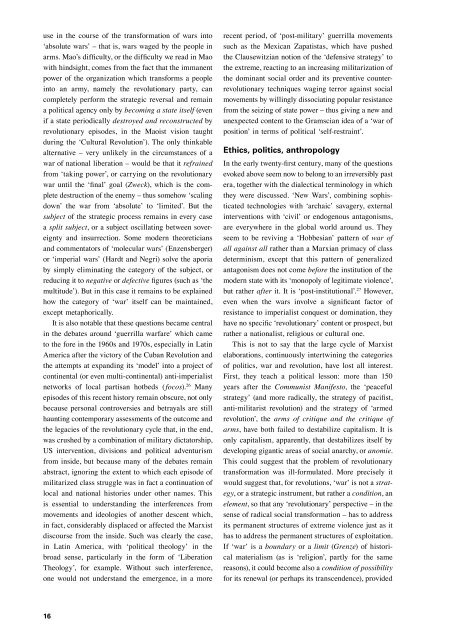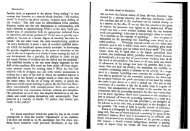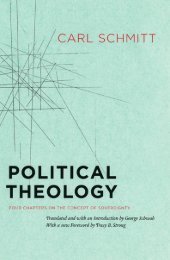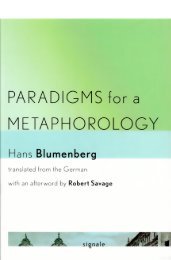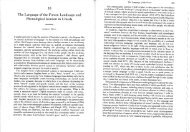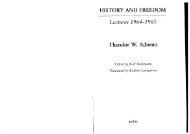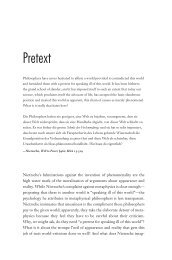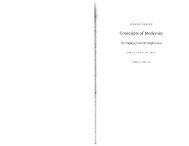Balibar Marxism and War.pdf - Townsend Humanities Lab
Balibar Marxism and War.pdf - Townsend Humanities Lab
Balibar Marxism and War.pdf - Townsend Humanities Lab
Create successful ePaper yourself
Turn your PDF publications into a flip-book with our unique Google optimized e-Paper software.
use in the course of the transformation of wars into<br />
‘absolute wars’ – that is, wars waged by the people in<br />
arms. Mao’s difficulty, or the difficulty we read in Mao<br />
with hindsight, comes from the fact that the immanent<br />
power of the organization which transforms a people<br />
into an army, namely the revolutionary party, can<br />
completely perform the strategic reversal <strong>and</strong> remain<br />
a political agency only by becoming a state itself (even<br />
if a state periodically destroyed <strong>and</strong> reconstructed by<br />
revolutionary episodes, in the Maoist vision taught<br />
during the ‘Cultural Revolution’). The only thinkable<br />
alternative – very unlikely in the circumstances of a<br />
war of national liberation – would be that it refrained<br />
from ‘taking power’, or carrying on the revolutionary<br />
war until the ‘final’ goal (Zweck), which is the complete<br />
destruction of the enemy – thus somehow ‘scaling<br />
down’ the war from ‘absolute’ to ‘limited’. But the<br />
subject of the strategic process remains in every case<br />
a split subject, or a subject oscillating between sovereignty<br />
<strong>and</strong> insurrection. Some modern theoreticians<br />
<strong>and</strong> commentators of ‘molecular wars’ (Enzensberger)<br />
or ‘imperial wars’ (Hardt <strong>and</strong> Negri) solve the aporia<br />
by simply eliminating the category of the subject, or<br />
reducing it to negative or defective figures (such as ‘the<br />
multitude’). But in this case it remains to be explained<br />
how the category of ‘war’ itself can be maintained,<br />
except metaphorically.<br />
It is also notable that these questions became central<br />
in the debates around ‘guerrilla warfare’ which came<br />
to the fore in the 1960s <strong>and</strong> 1970s, especially in Latin<br />
America after the victory of the Cuban Revolution <strong>and</strong><br />
the attempts at exp<strong>and</strong>ing its ‘model’ into a project of<br />
continental (or even multi-continental) anti-imperialist<br />
networks of local partisan hotbeds (focos). 26 Many<br />
episodes of this recent history remain obscure, not only<br />
because personal controversies <strong>and</strong> betrayals are still<br />
haunting contemporary assessments of the outcome <strong>and</strong><br />
the legacies of the revolutionary cycle that, in the end,<br />
was crushed by a combination of military dictatorship,<br />
US intervention, divisions <strong>and</strong> political adventurism<br />
from inside, but because many of the debates remain<br />
abstract, ignoring the extent to which each episode of<br />
militarized class struggle was in fact a continuation of<br />
local <strong>and</strong> national histories under other names. This<br />
is essential to underst<strong>and</strong>ing the interferences from<br />
movements <strong>and</strong> ideologies of another descent which,<br />
in fact, considerably displaced or affected the Marxist<br />
discourse from the inside. Such was clearly the case,<br />
in Latin America, with ‘political theology’ in the<br />
broad sense, particularly in the form of ‘Liberation<br />
Theology’, for example. Without such interference,<br />
one would not underst<strong>and</strong> the emergence, in a more<br />
recent period, of ‘post-military’ guerrilla movements<br />
such as the Mexican Zapatistas, which have pushed<br />
the Clausewitzian notion of the ‘defensive strategy’ to<br />
the extreme, reacting to an increasing militarization of<br />
the dominant social order <strong>and</strong> its preventive counterrevolutionary<br />
techniques waging terror against social<br />
movements by willingly dissociating popular resistance<br />
from the seizing of state power – thus giving a new <strong>and</strong><br />
unexpected content to the Gramscian idea of a ‘war of<br />
position’ in terms of political ‘self-restraint’.<br />
Ethics, politics, anthropology<br />
In the early twenty-first century, many of the questions<br />
evoked above seem now to belong to an irreversibly past<br />
era, together with the dialectical terminology in which<br />
they were discussed. ‘New <strong>War</strong>s’, combining sophisticated<br />
technologies with ‘archaic’ savagery, external<br />
interventions with ‘civil’ or endogenous antagonisms,<br />
are everywhere in the global world around us. They<br />
seem to be reviving a ‘Hobbesian’ pattern of war of<br />
all against all rather than a Marxian primacy of class<br />
determinism, except that this pattern of generalized<br />
antagonism does not come before the institution of the<br />
modern state with its ‘monopoly of legitimate violence’,<br />
but rather after it. It is ‘post-institutional’. 27 However,<br />
even when the wars involve a significant factor of<br />
resistance to imperialist conquest or domination, they<br />
have no specific ‘revolutionary’ content or prospect, but<br />
rather a nationalist, religious or cultural one.<br />
This is not to say that the large cycle of Marxist<br />
elaborations, continuously intertwining the categories<br />
of politics, war <strong>and</strong> revolution, have lost all interest.<br />
First, they teach a political lesson: more than 150<br />
years after the Communist Manifesto, the ‘peaceful<br />
strategy’ (<strong>and</strong> more radically, the strategy of pacifist,<br />
anti-militarist revolution) <strong>and</strong> the strategy of ‘armed<br />
revolution’, the arms of critique <strong>and</strong> the critique of<br />
arms, have both failed to destabilize capitalism. It is<br />
only capitalism, apparently, that destabilizes itself by<br />
developing gigantic areas of social anarchy, or anomie.<br />
This could suggest that the problem of revolutionary<br />
transformation was ill-formulated. More precisely it<br />
would suggest that, for revolutions, ‘war’ is not a strategy,<br />
or a strategic instrument, but rather a condition, an<br />
element, so that any ‘revolutionary’ perspective – in the<br />
sense of radical social transformation – has to address<br />
its permanent structures of extreme violence just as it<br />
has to address the permanent structures of exploitation.<br />
If ‘war’ is a boundary or a limit (Grenze) of historical<br />
materialism (as is ‘religion’, partly for the same<br />
reasons), it could become also a condition of possibility<br />
for its renewal (or perhaps its transcendence), provided<br />
16


